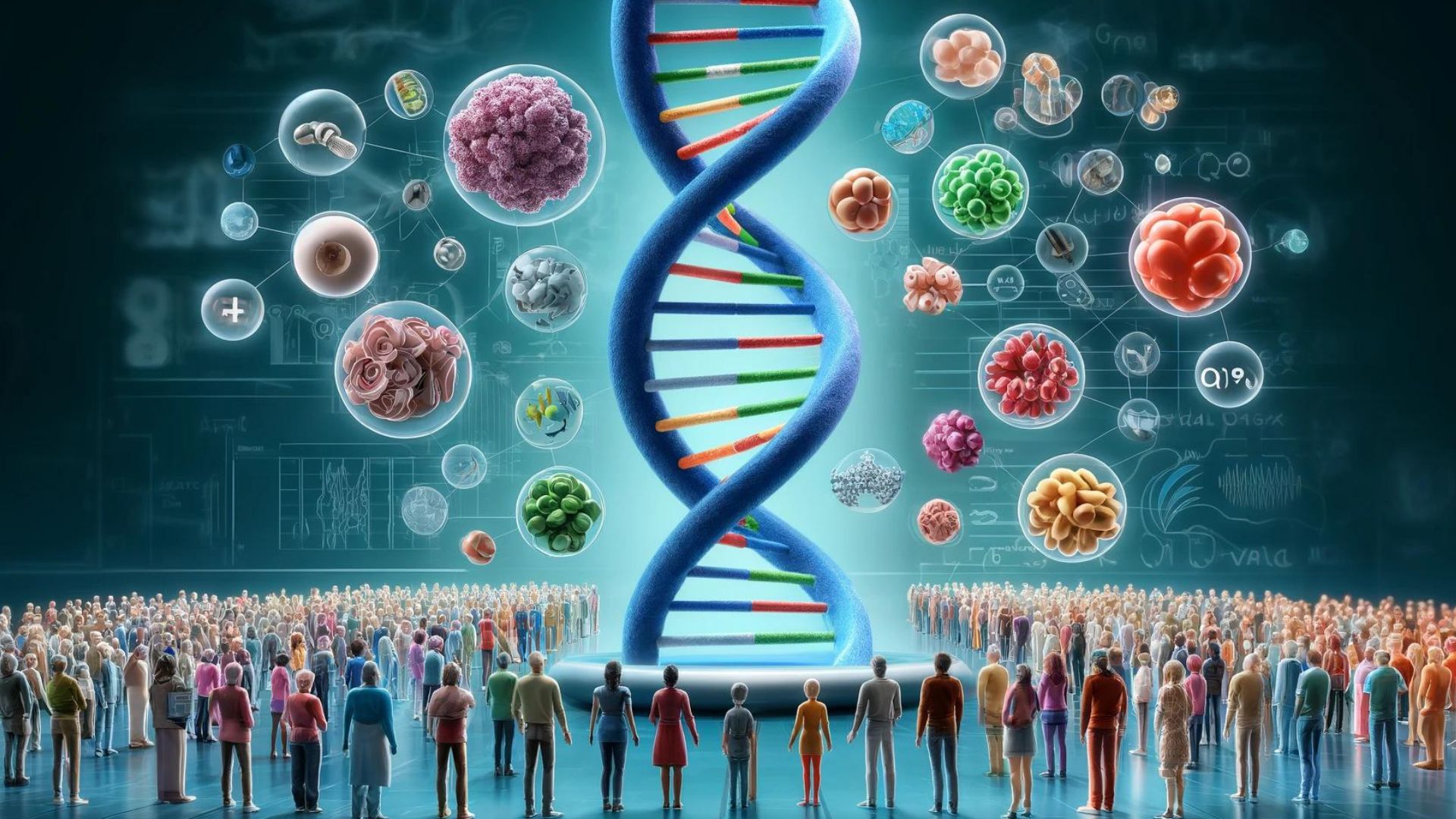A Very Short Introduction to Genetics
Imagine your body as a massive, intricate puzzle. Trillions of tiny pieces work in harmony to create a unique you. But what’s the instruction manual for building this puzzle? That’s where genetics enters the picture.
Genetics is the study of genes, the fundamental units of heredity. Our genes are like blueprints hidden deep inside every cell of our bodies. They determine a whole range of traits—how tall you might grow, your hair color, your eye color, and even some aspects of your personality.
But genes don’t just shape who you are individually; they tell a tale that stretches back generations! You inherited half your genes from your mom and the other half from your dad. Their genes came from their parents, and so on, weaving a complex tapestry of traits passed down through your family tree.
Understanding genetics has revolutionized our lives. In medicine, genetic testing helps predict or diagnose diseases, aiding in personalized treatment. Think of it like this: if a doctor knows your genetic makeup has a vulnerability towards a particular illness, they can be proactive with checkups and prevention.
In the world of forensics, DNA analysis has become an invaluable tool for solving crimes. Just like your fingerprints are unique, your genetic code also sets you apart, helping investigators identify or exonerate suspects. Geneticists have even unlocked the power to trace your ancestry back hundreds, even thousands of years, painting a vivid picture of your family’s origins.
Genetics is also vital in agriculture. By studying plant and animal genes, scientists develop crops with better yields, disease resistance, and enhanced nutrition, playing a huge role in feeding our growing world.
The field of genetics is ever-evolving. As scientists continue to unravel the mysteries of our genetic code, we can anticipate groundbreaking discoveries that will shape healthcare, agriculture, and even our understanding of human history.
Action Point
Ready to delve deeper into the fascinating world of genetics? Explore resources online, from articles to documentaries. Consider having a conversation about family health history with your loved ones. Genetics is a field packed with potential, and the journey of discovery starts with your own curiosity!
Why Should You Care?
- Understanding Your Health: Your genes can influence your risk of developing certain diseases. Learning about genetics helps you be proactive about your health and make informed decisions with your healthcare providers.
- Appreciating Your Uniqueness: Genetics explains why you have certain traits and how you’re connected to your ancestors. It’s a fascinating exploration of what makes you, you!
- Making Informed Choices: Genetic technologies are changing our world, from personalized medicine to agriculture. Understanding the basics helps you engage in critical discussions around ethics and how these advancements will shape our future.
Key Takeaways
- Genes are blueprints for our bodies: They influence everything from our appearance to our health.
- We inherit genes from our parents: This explains family resemblances and the passing down of certain traits or predisposition to diseases.
- Genetics has revolutionized multiple fields: Medicine, forensics, ancestry tracing, and agriculture have all been transformed by our understanding of genes.
Keywords
- Genetics: The study of genes and heredity.
- Genes: Basic units of heredity, made up of DNA, and carrying instructions to build proteins.
- Heredity: The passing of traits from parents to offspring.
- DNA: Deoxyribonucleic acid, the molecule that carries genetic information in all living organisms.
- Traits: Observable characteristics, such as eye color, height, or susceptibility to disease.
- Genetic testing: The analysis of an individual’s DNA to identify disease risks, ancestry, or other genetic information.
- Personalized medicine: Medical treatment that’s tailored to an individual’s specific genetic makeup.
- Forensics: The use of scientific techniques, including DNA analysis, to investigate crimes.
- Ancestry: Your family history, lineage, and origins.
- Agriculture: The practice of cultivating plants and raising livestock, where genetics plays a vital role in selective breeding and development of improved crops and animals.
Frequently Asked Questions
- Can I change my genes? Currently, gene modification in humans is largely limited to research, but it holds potential for treating genetic diseases in the future.
- If a disease runs in my family, does it mean I’ll definitely get it? Not necessarily. Many diseases have a genetic component, but lifestyle and environmental factors also play a role.
- Is genetic information private? There are concerns around genetic privacy, and it’s essential to be aware of who has access to your genetic data.
Myth Buster
- Myth: All genetically modified foods are bad for you.
- Reality: Genetic modification has been used for years to improve crops, enhance nutrition, and create disease-resistance. Rigorous safety testing is conducted, though concerns around long-term effects and labeling remain.
Let’s Talk
- Do you think everyone should consider genetic testing? Why or why not?
- How do you feel about the possibility of future technologies that allow editing our genes?
- Have you learned anything interesting about your family history through ancestry research?
Let’s get the conversation going in the comments below!










0 Comments